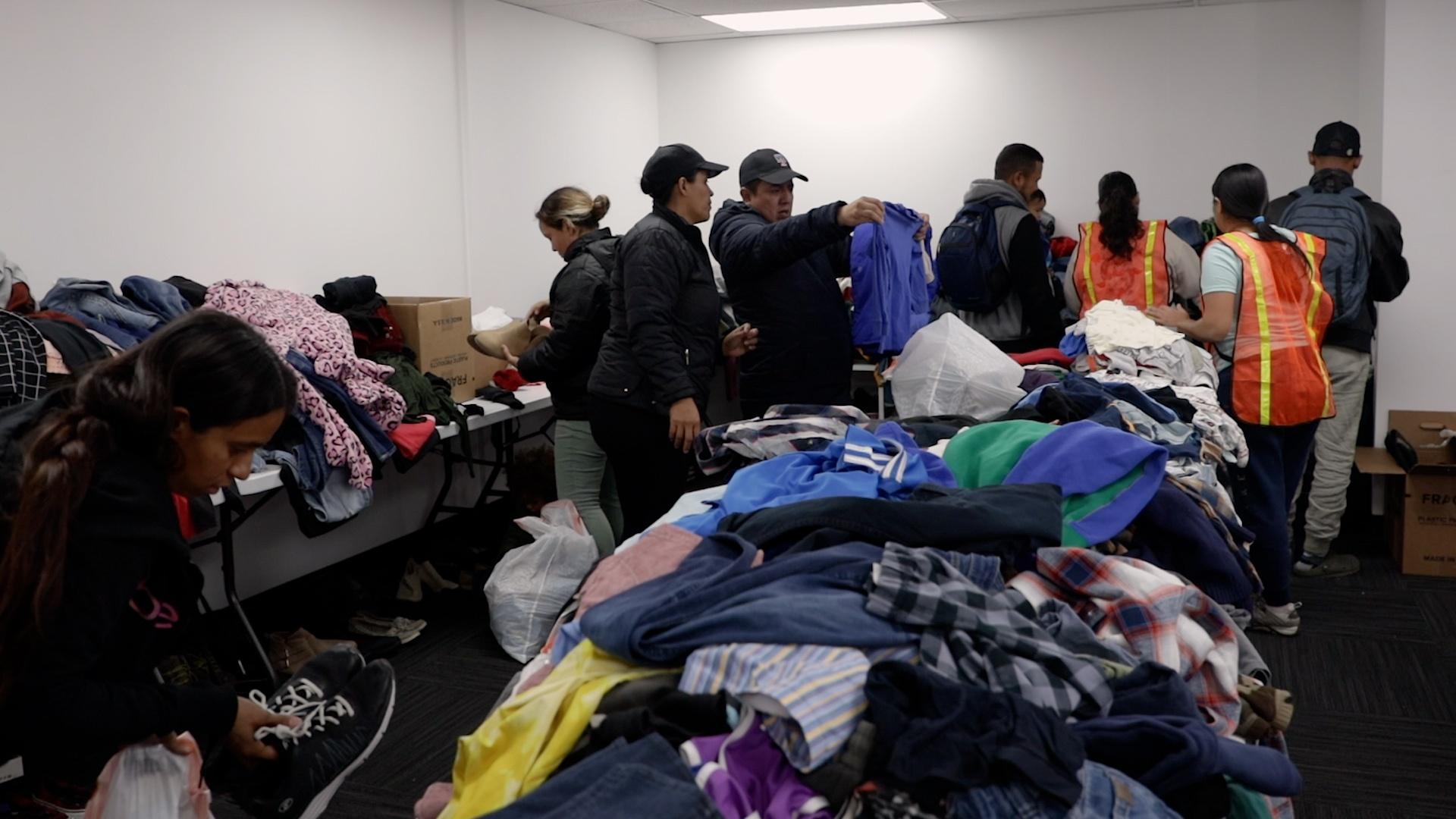Tens of thousands of migrants have come to Denver over the past year, and the influx shows no signs of stopping. As city officials have scrambled to address migrants’ basic needs, from food and shelter to bus tickets, other communities along the Front Range are bracing for possible arrivals, including Douglas County.
County leaders aren’t aware of any official efforts to bring migrants from Denver to the county for shelter, but are taking steps to prepare for that possibility.
The Douglas County Board of Health recently adopted an order with requirements for any entity that sends migrants to the county for shelter.
“At this point, we have no reason to believe that any of our neighboring governments intend to use Douglas County as a sheltering solution for the migrant population,” said Michael Hill, director of the Douglas County Health Department, in a news release. “However, the board of health believed — for the preservation of public health, safety, and welfare in Douglas County — that we should establish and communicate our expectations proactively.”
The county’s health order requires dates of a migrant’s arrival in the U.S. and Colorado, country of origin, health screening information, and other information, including anticipated departure from Douglas County.
‘No shelters in Douglas County’
The migrants — many from Venezuela — are fleeing economic crisis and turmoil. Many have been bused from near the U.S.-Mexico border to Denver, where officials point the finger at leaders such as Texas Gov. Greg Abbott.
Over the course of more than a year, the City and County of Denver has served more than 37,000 migrants. That’s according to Denver’s “migrant sheltering and support” online dashboard (updated Jan. 9).
Some migrants are already gravitating away from Denver, including to Aurora. And, in Lakewood, the former mayor expressed concerns about how to respond to the crisis.
Months before Douglas issued its health order in December, county leaders called a special meeting urging Denver not to send migrants. Officials said the county does not have the resources to help the migrants.
Asked whether Denver — or any organization that the city works with — has sent any migrants to Douglas County, a city spokesperson said: “We have no shelters in Douglas County and never have.”
“I have no idea on the nonprofits as I don’t speak for them,” added Jon Ewing, spokesperson for Denver Human Services.
“In a broader sense, I think people will go where they can find work or assistance, but as far as the City of Denver goes we haven’t sent anyone to DougCo,” Ewing said.
What’s in the order
Douglas isn’t the first suburban county to react to the crisis.
In a move that grabbed headlines, Denver sent migrants to a shelter operation in nearby Adams County, prompting that county to issue a public health order that required any entity sheltering migrants in Adams to provide “personal information for each migrant” to the county.
The text of Adams County’s order cast the requirements as a necessary step to protect public health from potential risk.
“Migrant persons, primarily asylum seekers, are a particularly vulnerable population because often times (1) they have traveled from countries with limited or no access to routine healthcare — including vaccination and chronic disease management, (2) they have traveled for prolonged periods living in settings that lack hygiene and through countries with potential exposure to disease (person-to-person, intestinal, vector borne, etc.),” says Adams County’s order, adopted in October.
That language is echoed in Douglas County’s order, which also requires any individual or entity sending groups of migrants to shelter in facilities in Douglas County to provide information to the county in writing.
Among other things, the order also requires that organizations provide information about facilities that would be used to temporarily shelter migrants in Douglas County.
Douglas County’s order document also says: “Douglas County Health Department acknowledges the inherent dignity and human rights of every person, regardless of immigration status.”
Talking timeline
Asked why the Douglas health board waited until December to issue a public health order with instructions for organizations who may bring migrants to Douglas County, a county spokesperson noted that the health board doesn’t meet every month.
“The board did act quickly to put in place (the) interim order, but we also wanted to take the time to review what other counties had already done,” said Doug Benevento, president of the Douglas health board.
The policy is an “interim,” or temporary, order while the health board staff conducts “stakeholder outreach” to discuss what additional steps the county should take, according to the county.
The order is in effect until April 2 and is subject to revision and extension by the health board.
If you want to help
If you or someone you know wants to help migrants who arrive in Denver, see this list from Denverite of ways to help at tinyurl.com/DenverMigrantAssist.




